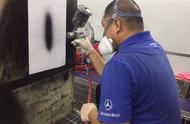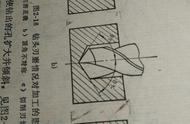思维导图

文/Tina 图/Tina 排版/Tina
知识要点
英语中大多数形容词、副词是可以分等级的,一般有三个等级:原级,比较级和最高级。形容词、副词的本来形式就是它们的原级。
一、原级
1.形容词一般用来修饰名词,在句中可以作定语,作表语,作宾语补足语。
副词表示程度,一般用来修饰动词。
eg: He is a good boy.
She is beautiful.
I have something important to do.
He runs fast.
2.当不定代词something,anything,nothing等被形容词修饰时,形容词要放在不定代词的后面。
eg: I have something important to do.
3.如果有两个或两个以上的形容词修饰一个名词时,一般音节少的形容词放在前面,音节多的放在后面。
eg: I have two little beautiful cats.
4.用and 或or 连接起来的两个形容词作定语时,一般把它们放在被修饰的名词后面,起进一步解释的作用。
eg: You can take any box away,big or small.
二、比较级
1.定义:表示两者之间的比较用比较级,比较级后面一般带有单词than。
比较级的句子结构通常是:
主语 动词 比较级 than(比) 比较对象 ,如:
I'm taller than you.
An elephant is bigger than a tiger.
Tim runs faster than Jim.
2.比较级的变化规则
(1)规则变化:
① 一般直接在词尾加er ,如 tall - taller , strong - stronger
② 以e结尾的,直接加r ,如 fine - finer ,nice-nicer
③ 以辅音字母加y结尾的,先改y为i再加er,如funny - funnier,easy-easier
④以重读闭音节结尾的词,双写末尾字母再加er,
如big--bigger, thin--thinner ,hot–-hotter, sad--sadder,fat—fatter
⑤部分双音节和多音节比较级前加 more,如:
beautiful--more beautiful,
expensive--more expensive
(2)不规则变化:
many / much(原形)- more(比较级)
little / few(原形) - less (比较级)
good/well(原形) - better(比较级)
bad /ill(原形) - worse(比较级)
far (原形)-- further(比较级)
3.比较级前的修饰词
比较级前的修饰词:a little, a lot, much, even,far,still
eg: He is much taller than me.
4.形容词、副词比较级的特殊用法
(1)形容词/副词比较级 than any other 单数名词( 介词短语)”表示“比同一范围的任何一个人/物都……”,含义是“最……”。
例如,Mike gets to school earlier than any other student in his class.
= Mike gets to school earlier than any of the other students in his class.
= Mike gets to school earlier than the other students in his class.
= Mike gets to school earliest in his class.(后面要讲的最高级)
注意:Mike gets to school earlier than any student in Tom’s class.
(2)“the 形容词比较级 of the two ……”表示“...是两者中较…的”。
如:Look at the two boys. My brother is the taller of the two.
(3)“比较级 and 比较级”表示“越来越……”
如:He is getting taller and taller.
(4)“the 比较级,the 比较级”表示“越…,越…,”。The more careful you are,the fewer mistakes you’ll make.
三、最高级
1.定义:表示三者或三者以上进行比较用最高级。最高级后面一般有of 或 in。
结构:“主语 动词 the 形容词最高级 单数名词 in/of短语”表示“……是……中最……的”。
如,Tom is the tallest in his class./of all the students.
Jim sings best in the competition.
2.最高级的变化规则
(1)规则变化:
① 一般直接在词尾加est ,如 tall - taller -tallest, strong - stronger -strongest
② 以e结尾的,直接加st ,如 fine - finer-finest ,nice-nicer-nicest
③ 以辅音字母加y结尾的,先改y为i再加est,如funny - funnier-funniest,easy-easier-easiest
④以重读闭音节结尾的词,双写末尾字母再加est,
如big--bigger-biggest, thin--thinner -thinnest,hot–-hotter-hottest, sad--sadder-saddest,fat—fatter-fattest
⑤部分双音节和多音节最高级前加 most,如:
beautiful--more beautiful--most beautiful, expensive--more expensive--most expensive
(2)不规则变化:
many / much(原形)- more(比较级)-most(最高级)
little / few(原形) - less (比较级)-least(最高级)
good/well(原形) - better(比较级)-best (最高级)
bad /ill(原形) - worse(比较级) -worst(最高级)
far (原形)-- further(比较级)-farthest/furthest(最高级)
3.形容词、副词最高级的特殊用法
(1)“主语 动词 one of the 形容词最高级 复数名词 in/of短语”表示“…是……中最……之一”。
如,Beijing is one of the largest cities in China.
(2)序数词 最高级
Hainan Island is the second largest island in China.
练习
学完语法之后,练习巩固很重要哦。欲获得专项练习,可添加微信公众号并回复形容词副词专项练习!!!
*Tina成长空间
,












